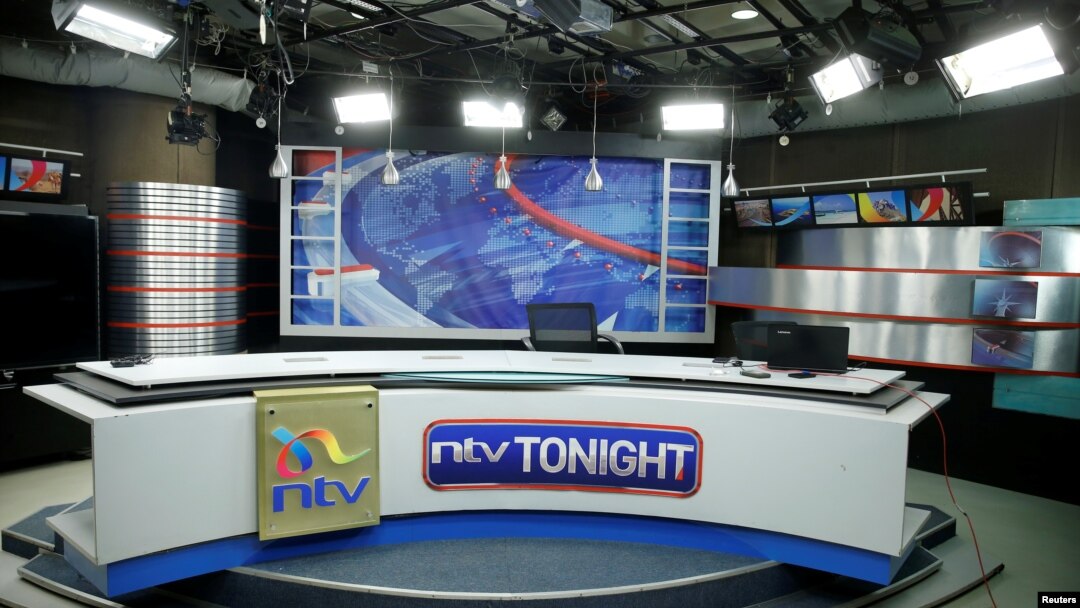Political tensions continue to rise in Kenya as the government defied a court order to lift a ban on three independent media organizations. Authorities also arrested a key opposition ally in the wake of Raila Odinga's self-inauguration Tuesday as the so-called "people's president."
Kenya's three largest broadcasters remained off the air for a fourth day Friday despite the high court ruling the day before that the government must reverse the suspension. Authorities cut transmission for the media outlets Tuesday as they prepared live coverage of the opposition's swearing-in event.
The Kenyan human rights activist behind the legal challenge, Okiya Omtata, attempted to serve the court papers to the government's Communications Authority Friday.
"I was personally marked," he told VOA, "and I was not allowed past the gate. I was told that they had instruction from above not to be allowed past the gate, nor the court order to be served. So what I did is I pinned it on the wall — a copy of the order, but they ripped it off."
Omtata said he has no choice but to bring the matter back to the court Monday.

A studio on the newsroom floor of the NTV channel is seen, which was shut down by the Kenyan government because of its coverage of opposition leader Raila Odinga's symbolic presidential inauguration this week, at the Nation group media building in Nairobi
"It now clarifies issues for me," he said. "Now I know what we are dealing with is not a failure to comprehend the law, but a deliberate move by the government to violate the Bill of Rights and the constitution of Kenya and to operate outside the consent of the law."
The Communications Authority has not commented on the ban. Omtata said he was able to serve the remaining court papers addressed to the attorney general, interior minister, and minister of information, communication and technology.
The ruling Jubilee administration accuses the media of failing to heed its advice not to air Tuesday' opposition swearing-in. In a statement released Wednesday, the day before the high court's ruling, Interior Minister Fred Matiang'i said the stations will remain shut throughout ongoing investigations into alleged complicity in what he called an effort to subvert the government and spark violence.
In a statement Thursday, the U.S. State Department grave concern over what U.S. officials called "the government's action to shut down, intimidate, and restrict the media" and Odinga's self-inauguration.
Opposition leader Raila Odinga holds a bible aloft after swearing an oath during a mock "swearing-in" ceremony at Uhuru Park in downtown Nairobi, Kenya, Jan. 30, 2018.
Odinga has refused to accept the results of an October presidential run-off, which he boycotted. Incumbent President Uhuru Kenyatta was declared the winner.
Murithi Mutiga, the International Crisis Group's Kenya researcher, says the spat between the Kenyatta administration and the media will go on.
"He came to office and seems to have an axe to grind with the key element of the society including the media and civil society and that has continued and persisted," said Mutiga. "We've seen media houses being denied advertising, which is a crucial source of revenue. We've seen continued attempts to legislate against the media. So I think, I think it will continue, they will continue to be a push and pull between the administration and the media."
President Kenyatta gave a televised speech at the Kenya School of Government Friday. At the end, he gestured to the journalists, saying in Swahili, "Now why don't you switch off your things, pack and go? Your work is over."


